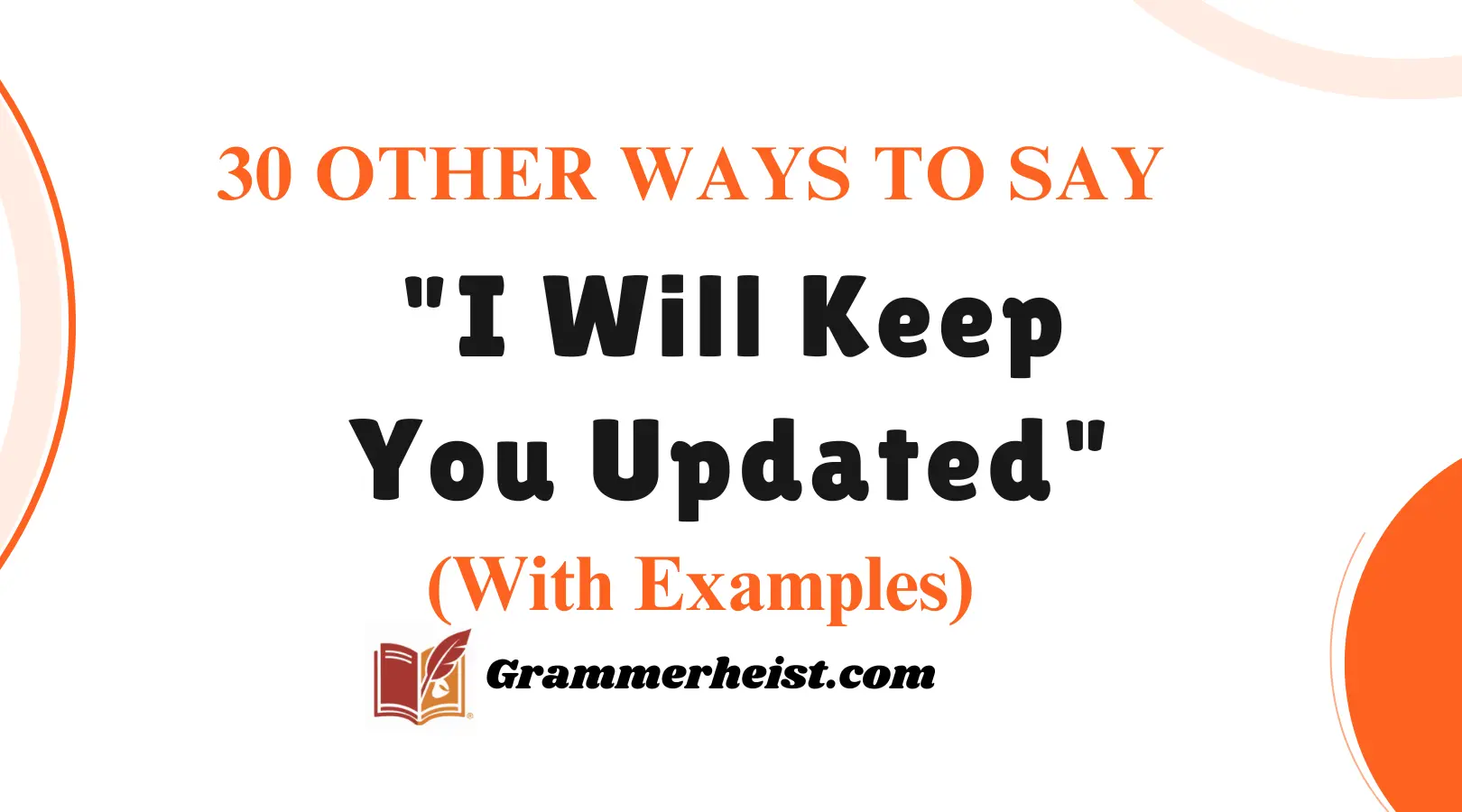Finding the right words to express yourself can go a long way in making your communication feel personal, thoughtful, and considerate. Whether you’re responding to a request, confirming an action, or just keeping the conversation flowing, it’s important to choose phrases that reflect the warmth and care you want to convey.
In this article, we’ll explore 20 alternative ways to say “Will Do”, each offering a different nuance of meaning, from the casual and friendly to the more formal and professional.
What Does “Will Do” Mean?
“Will do” is a simple, informal way of saying that you’ll take care of something or agree to a request. It’s often used to acknowledge that you’re on board with a task or action, signaling a positive response and willingness. While it’s perfectly appropriate in many contexts, there are various other ways to communicate the same idea that may better fit the tone of your conversation. Let’s explore these alternatives.
Is It Professional/Polite to Say “Will Do”?
“Will do” can be professional, depending on the situation. It’s widely used in casual and workplace settings, but its informality may not always convey the right level of politeness or professionalism, especially in more formal situations. Using a more thoughtful alternative could help ensure you communicate both respect and commitment while keeping the tone suitable for the occasion.
Advantage or Disadvantage
Advantage:
- Personalization: Adds a thoughtful, caring touch to communication.
- Variety: Keeps conversations fresh and engaging.
- Tone Control: Tailors responses to fit the situation.
- Confidence: Reassures others with a strong sense of reliability.
- Empathy: Shows support and builds trust.
Disadvantage:
- Over-promising: Might set unrealistic expectations.
- Casualness: Some phrases may seem too informal in professional settings.
- Lack of Specificity: May not provide enough details about the task.
- Tone Misinterpretation: Some phrases may sound dismissive.
- Excessive Assurance: Can lead to over-committing or burnout.
Synonyms for Will Do
- Got it!
- Consider it done!
- You got it!
- No problem!
- I’ll take care of it!
- I’ve got this!
- Sure thing!
- Absolutely!
- Will do, no worries!
- On it!
- I’ll handle it!
- Count on me!
- I’ll make it happen!
- I’m on it, no sweat!
- Leave it to me!
- I’ll get right on it!
- I’ve got it covered!
- You can count on me!
- Absolutely, I’ll get on it!
- It’s all yours!
1. “Got it!”
Meaning: Acknowledge that you understand the request or instruction.
Definition: “Got it” is a casual phrase indicating you’ve understood and are ready to follow through.
Explanation: It’s an informal, friendly way to confirm understanding without sounding too stiff.
Scenario Example:
- “Can you send me the report by tomorrow?”
- “Got it!”
Best Use: Best used in casual settings or among peers.
Tone: Friendly, relaxed.
2. “Consider it done!”
Meaning: Assure someone that their request will be completed.
Definition: This phrase implies confidence and eagerness to complete the task.
Explanation: It’s a way of expressing that you are ready and willing to get the task done.
Scenario Example:
- “Can you help me with this project?”
- “Consider it done!”
Best Use: When you’re eager to help or have confidence in completing a task quickly.
Tone: Enthusiastic, confident.
3. “You got it!”
Meaning: Confirm you will do what has been asked.
Definition: This phrase is a colloquial variation of “got it,” with a slightly more emphatic tone.
Explanation: Similar to “Got it,” but conveys a slightly stronger sense of affirmation.
Scenario Example:
- “Please take care of the meeting details.”
- “You got it!”
Best Use: Best when speaking with friends or in informal workplace settings.
Tone: Casual, friendly.
4. “No problem!”
Meaning: Reassure someone that you are happy to take on the task.
Definition: A reassuring and polite way to indicate you’re fine with fulfilling the request.
Explanation: It implies that there’s no inconvenience in completing the task.
Scenario Example:
- “Can you pick up some groceries for me?”
- “No problem!”
Best Use: Great for casual conversations or when someone is asking for a small favor.
Tone: Polite, positive.
5. “I’ll take care of it!”
Meaning: Confirm that you will handle the task at hand.
Definition: Implies responsibility and assures the other person that you will manage the task.
Explanation: This phrase is often used when you want to express accountability for a job.
Scenario Example:
- “I need you to finalize the presentation.”
- “I’ll take care of it!”
Best Use: When you want to convey responsibility and trustworthiness.
Tone: Responsible, confident.
6. “I’ve got this!”
Meaning: Assure someone that you’re capable and ready to handle the task.
Definition: A more informal, self-assured way to express you’re on it.
Explanation: This phrase gives a sense of confidence and readiness to tackle the task.
Scenario Example:
- “Can you run the meeting tomorrow?”
- “I’ve got this!”
Best Use: When you’re confident and want to convey a sense of control.
Tone: Confident, positive.
7. “Sure thing!”
Meaning: A casual, positive way to say you’ll do something.
Definition: A lighthearted and friendly affirmation that you will do what is asked.
Explanation: It’s often used in casual contexts and conveys eagerness.
Scenario Example:
- “Can you email that report?”
- “Sure thing!”
Best Use: Best in informal or relaxed environments.
Tone: Friendly, casual.
8. “Absolutely!”
Meaning: A strong affirmation that you will complete the request.
Definition: Indicates certainty and eagerness to fulfill the request.
Explanation: This phrase suggests a deep willingness to help.
Scenario Example:
- “Could you help me move this weekend?”
- “Absolutely!”
Best Use: When you want to convey enthusiasm or strong support.
Tone: Enthusiastic, supportive.
9. “Will do, no worries!”
Meaning: Reassure someone that the task is not a problem.
Definition: A friendly affirmation, indicating that you’ll handle the task with ease.
Explanation: The added “no worries” makes this phrase sound extra reassuring and easygoing.
Scenario Example:
- “Could you take care of the files?”
- “Will do, no worries!”
Best Use: When you want to convey ease and reassure the other person.
Tone: Easygoing, relaxed.
10. “On it!”
Meaning: Confirm you’ll start immediately.
Definition: A quick and confident response that you’re actively handling the request.
Explanation: It’s a shorthand for saying you’re already working on something or are about to.
Scenario Example:
- “I need those papers by 3 PM.”
- “On it!”
Best Use: Great for fast-paced environments or when you want to communicate immediacy.
Tone: Quick, efficient.
11. “I’ll handle it!”
Meaning: Indicates that you will take full responsibility for the task.
Definition: A way of expressing that you’ll take charge of the situation or task.
Explanation: This phrase reassures the other person that you’ve got it under control.
Scenario Example:
- “Can you organize the meeting for next week?”
- “I’ll handle it!”
Best Use: When you want to convey responsibility and leadership.
Tone: Authoritative, confident.
Read More: Other Ways to Say “Thank You for Your Concerns” (With Examples)
12. “Count on me!”
Meaning: Assure someone that they can rely on you to get something done.
Definition: A warm and encouraging way to express your commitment.
Explanation: This phrase conveys both reliability and the willingness to help.
Scenario Example:
- “I need someone to cover for me at the event.”
- “Count on me!”
Best Use: When you want to convey trustworthiness and assurance.
Tone: Reassuring, supportive.
13. “I’ll make it happen!”
Meaning: A confident way to say you’ll ensure the task is completed.
Definition: This phrase indicates that you’re committed to seeing the task through.
Explanation: It’s often used to convey strong determination and initiative.
Scenario Example:
- “Can you organize the party for next month?”
- “I’ll make it happen!”
Best Use: When you want to show determination and proactivity.
Tone: Determined, confident.
14. “I’m on it, no sweat!”
Meaning: A casual, confident way of saying you’ll take care of it with ease.
Definition: This phrase indicates that the task is easy and you’re happy to do it.
Explanation: It conveys a relaxed yet confident attitude toward handling the job.
Scenario Example:
- “Can you send me the updated files?”
- “I’m on it, no sweat!”
Best Use: When you want to show both ease and confidence, especially in casual settings.
Tone: Easygoing, confident.
15. “Leave it to me!”
Meaning: Suggest that the task is in good hands with you.
Definition: This phrase assures the other person that you will take full responsibility for the task.
Explanation: It shows a strong willingness to handle the situation, removing the burden from the other person.
Scenario Example:
- “Can you handle the customer service issue?”
- “Leave it to me!”
Best Use: When you want to demonstrate leadership and confidence in handling the task.
Tone: Confident, reassuring.
16. “I’ll get right on it!”
Meaning: Indicates you will begin the task immediately.
Definition: A phrase used to express urgency and readiness to start the task.
Explanation: It conveys both the intention to take immediate action and a sense of urgency.
Scenario Example:
- “Can you send the email to the client?”
- “I’ll get right on it!”
Best Use: Best when you need to convey urgency and promptness.
Tone: Urgent, eager.
17. “I’ve got it covered!”
Meaning: A way to assure someone that the task will be taken care of.
Definition: This phrase communicates that you have everything under control.
Explanation: It’s often used when you want to reassure someone that they don’t need to worry.
Scenario Example:
- “Do you need help with the presentation?”
- “I’ve got it covered!”
Best Use: When you want to assure someone that the task is being handled efficiently.
Tone: Reassuring, confident.
18. “You can count on me!”
Meaning: Another variation of expressing that someone can rely on you.
Definition: It suggests trustworthiness and a firm commitment to helping.
Explanation: This phrase expresses reliability and confidence in fulfilling the request.
Scenario Example:
- “Can you help me with the event setup?”
- “You can count on me!”
Best Use: When you want to reassure someone that you are dependable.
Tone: Reassuring, supportive.
19. “Absolutely, I’ll get on it!”
Meaning: A more enthusiastic way of saying you’ll take care of the task.
Definition: A lively and positive affirmation that you’re on board with the task.
Explanation: This phrase implies eagerness to complete the task with a positive attitude.
Scenario Example:
- “Can you organize the meeting details?”
- “Absolutely, I’ll get on it!”
Best Use: When you want to show enthusiasm and energy toward the task.
Tone: Enthusiastic, positive.
20. “It’s all yours!”
Meaning: A way of saying that you’ll handle it, without further need for action from others.
Definition: This phrase expresses that you’re taking responsibility for the task completely.
Explanation: It conveys confidence and assures the other person that the task will be done with care.
Scenario Example:
- “Can you manage the client’s request?”
- “It’s all yours!”
Best Use: When you want to take full responsibility for the task.
Tone: Confident, assuring.
Conclusion
Choosing the right way to express “Will Do” can make all the difference in how your message is received. Whether you opt for the casual friendliness of “Got it!”, the confident assurance of “Consider it done!”, or the enthusiastic “I’ll make it happen!”, each alternative helps you communicate your willingness to help in a more engaging and thoughtful way. By varying your phrasing, you can match your tone to the situation, ensuring your message is always well received.

Lexy Summer is a talented writer with a deep passion for the art of language and storytelling. With a background in editing and content creation, Lexy has honed her skills in crafting clear, engaging, and grammatically flawless writing.



